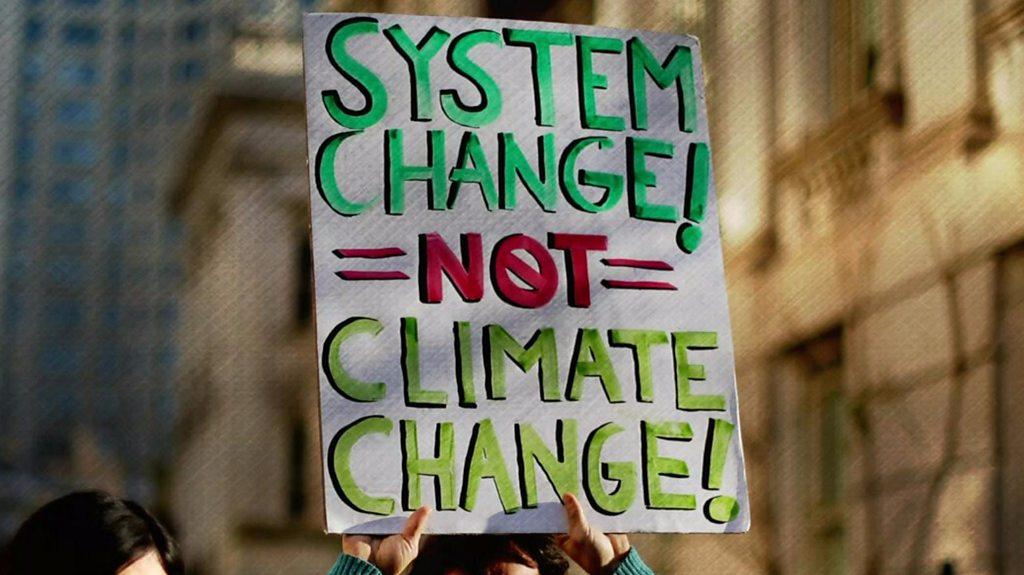March for Science: Thousands in London join global protest
- Published
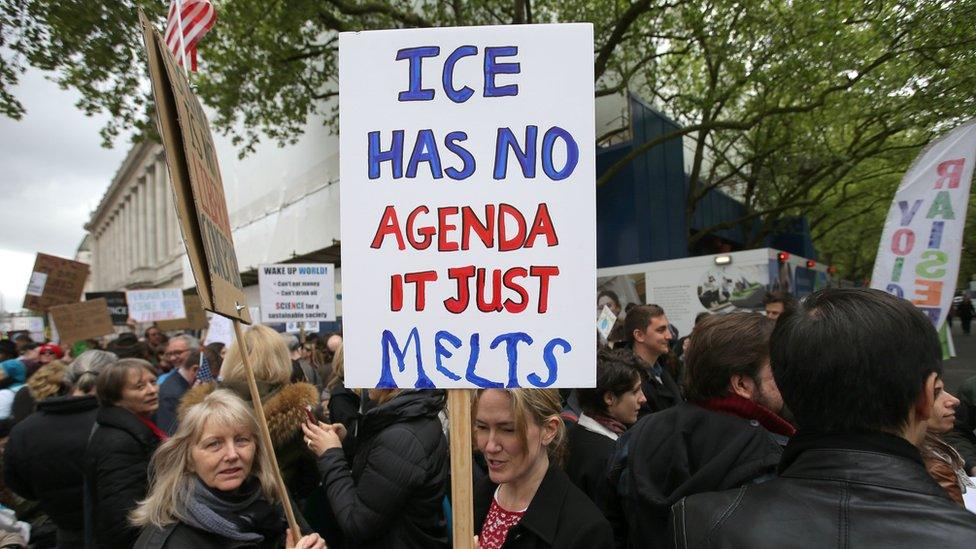
Thousands of people have gathered in London to join a celebration of science amid fears research is under threat from a "post-truth" age and Brexit.
Scientists and celebrities were among those who turned out for the first March for Science, part of a string of events across the UK and the world.
Organisers said the growth of fake news and misinformation made it crucial to highlight science's "vital role".
It took place on Earth Day, external, which promotes environmental protection.
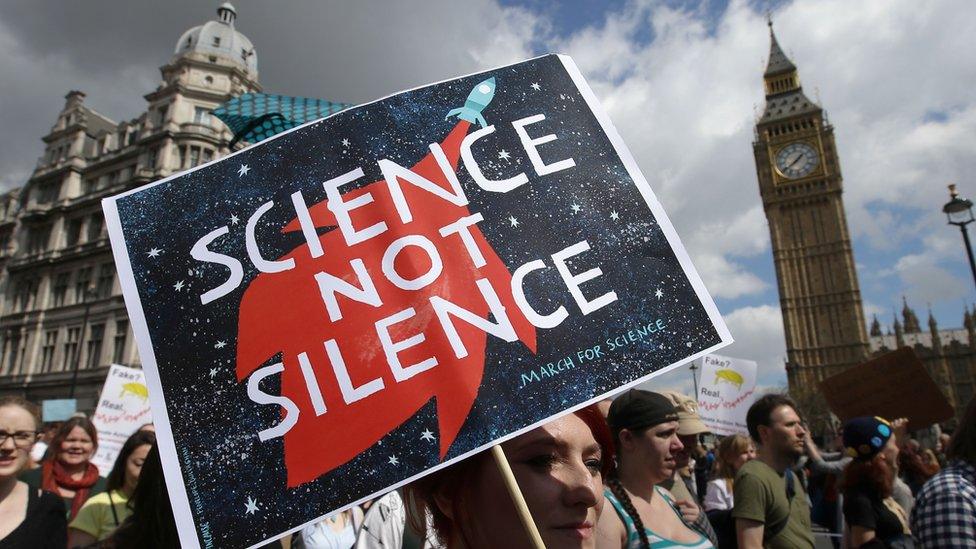
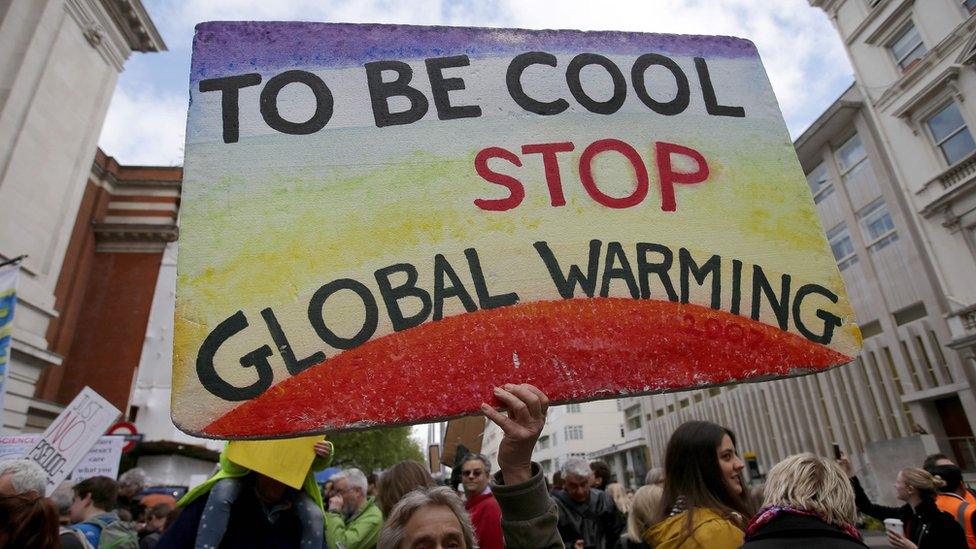
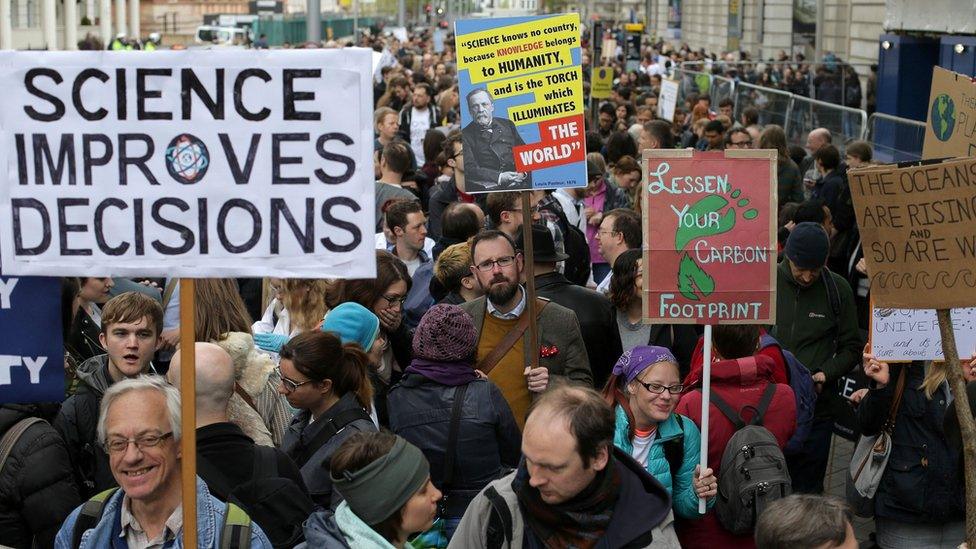
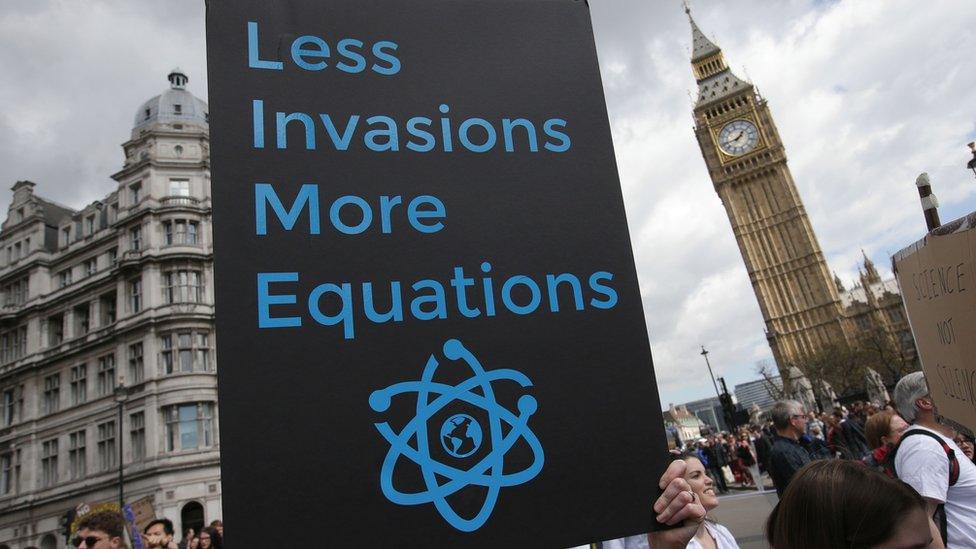
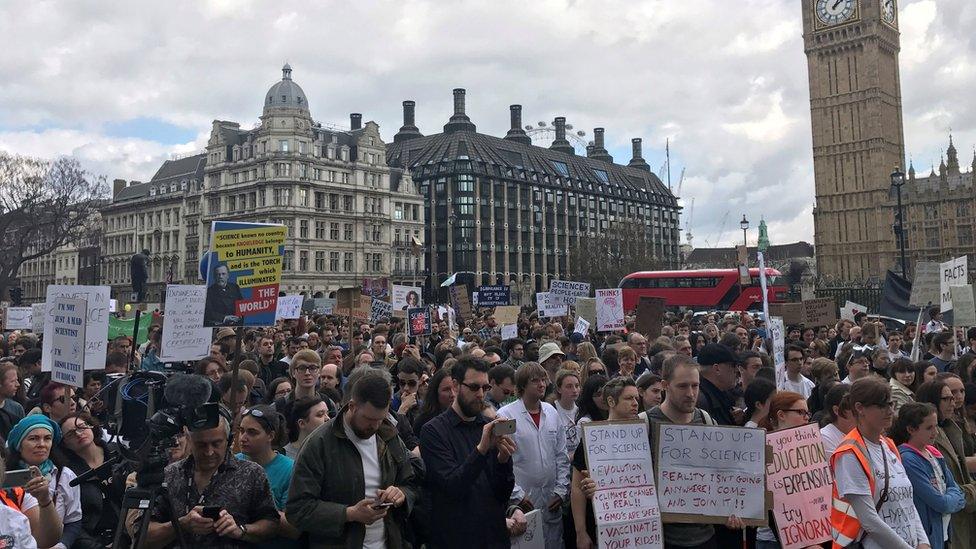
Supporters gathered outside the Science Museum in Kensington, bearing placards on which double helices and chemical symbols sat alongside political slogans.
Thousands then marched to Parliament Square passing institutions such as the Royal Society.
Many of them were protesting against what they see as a trend among politicians for discrediting scientific research.
Concerns that rhetoric threatens to override research flared in the UK last summer when former cabinet minister Michael Gove claimed during the EU referendum campaign that the public had "had enough of experts".
In the US, President Donald Trump has previously called climate change a "hoax", raising concern in the scientific community there that the public were beginning to doubt the facts provided as scientific evidence.
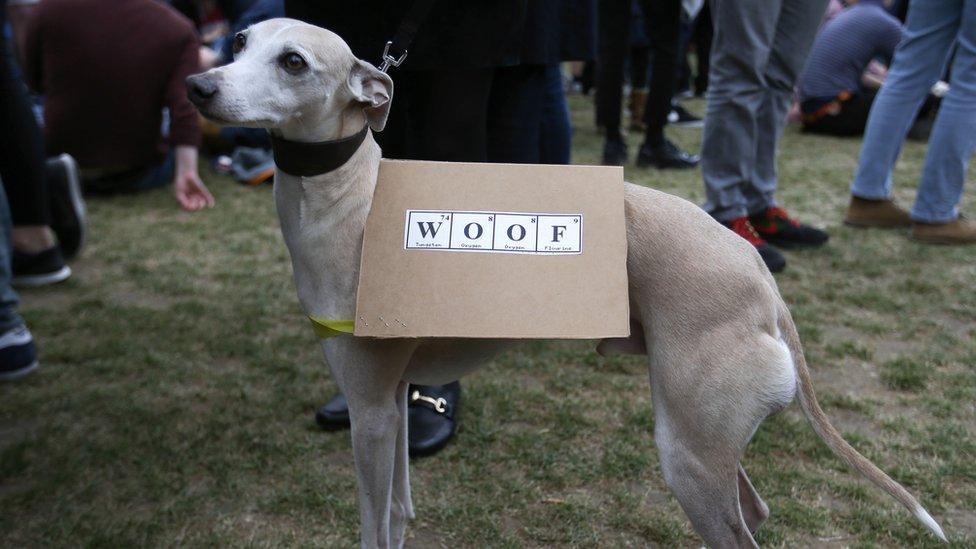
Organisers said the events were also a celebration of science and a call to support and safeguard the scientific community.
Doctor Who star Peter Capaldi and comedian Robin Ince were among those who joined activists in London.
Mr Ince, who hosts the Radio 4 programme and podcast The Infinite Monkey Cage, said: "I think there are many reasons people are out here.
"I think we're worried about the fact there seems to be a reigniting of parochialism in politics...
"I think the idea of deriding experts, the idea of deriding people that spend their entire life researching and experimenting, is a return to charlatanism if we start doing that."
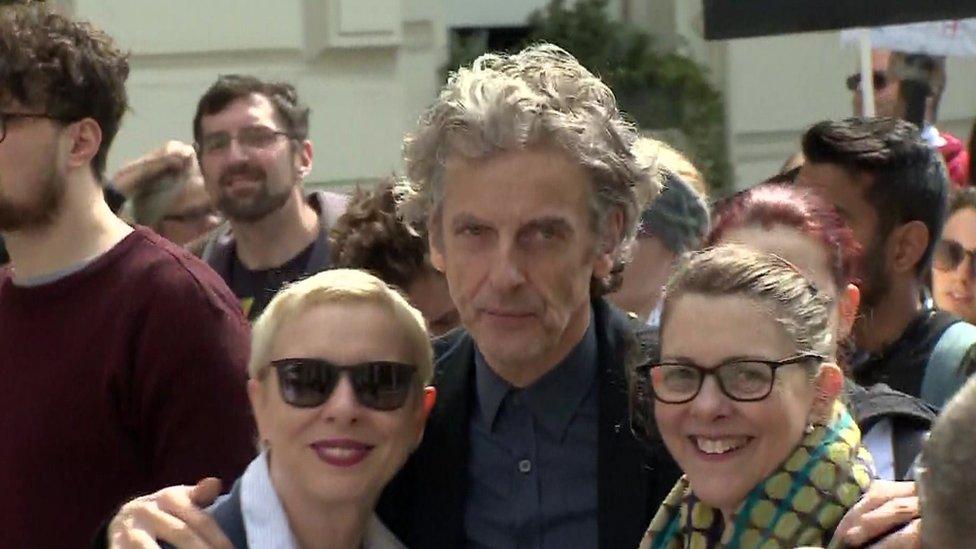
Dr Who star Peter Capaldi was among those at the march
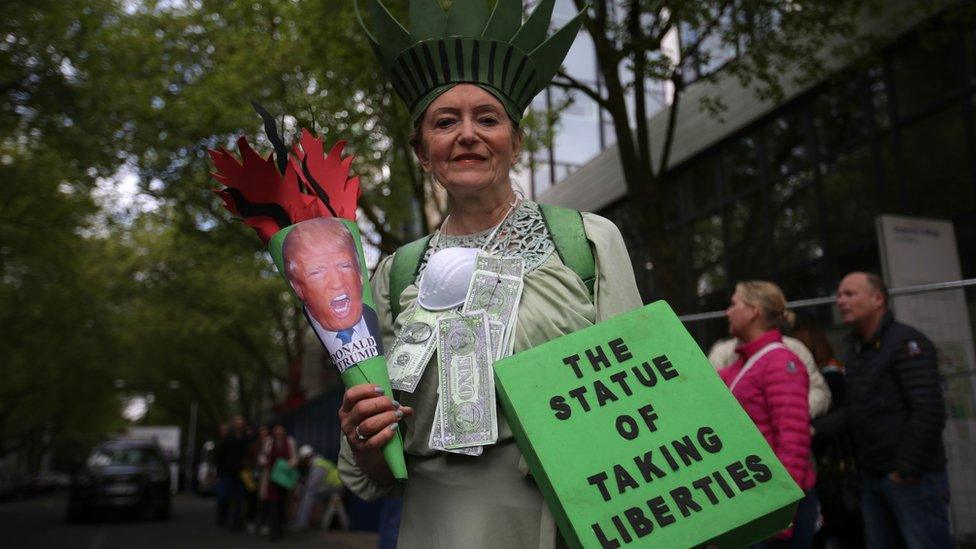
The Commons Science and Technology Committee this month stressed the importance of allowing scientists and experts to come to the UK following Brexit.
It followed a host of warnings from influential figures in the scientific community that divorce from the continent could have a crippling impact on research and provoke an exodus of talent.
In March, Nobel Prize winning scientist Sir Paul Nurse said: "I don't think there's anything in Brexit that helps universities, either in teaching or research, but we are where we are... we have to make the best of it."
Parallel marches were hosted across the UK, including in Manchester, Bristol, Cardiff and Edinburgh.
A government spokesman said: "As we prepare to exit the EU we will maximise our potential by building on our achievements so we remain a leading destination for the brightest and best minds at all stages of their careers."
- Published22 April 2017
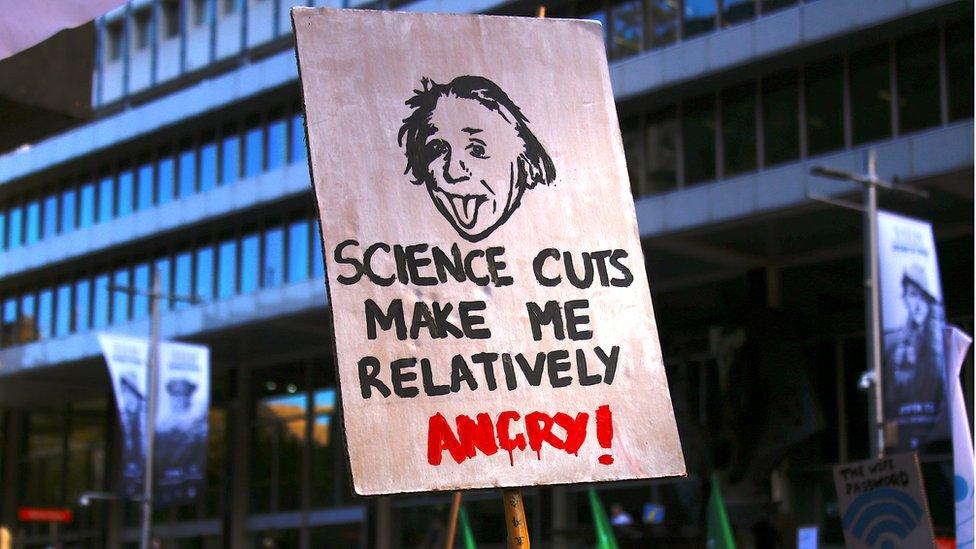
- Published21 April 2017
